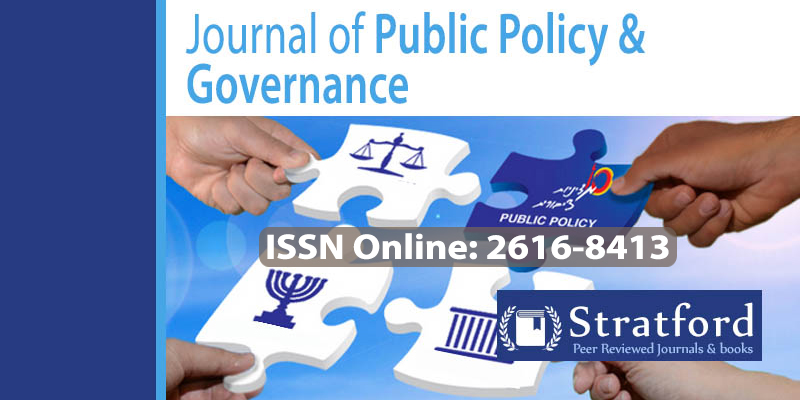Exploring Rwanda’s Diplomatic Efforts to Attract Foreign Investors: The Case Study of Ministry of Foreign Affairs and International Cooperation
DOI:
https://doi.org/10.53819/81018102t2225Abstract
Diplomacy Investment has been the superlative source of extrinsic finance for developing country. Economic diplomacy is concerned with conducting international business. The general objective of this study was to assess the diplomacy and investment through Ministry of Foreign Affairs and International Cooperation. Specifically, the study focused on to examine the effect of the public diplomacy on investment, to establish the effect of economic diplomacy on investment, and to determine the effect of science diplomacy on investment through Ministry of Foreign Affairs and International Cooperation. Qualitative and quantitative methods were used in the design of the descriptive study. Information gathered by use of questionnaire. Eighty-one respondents working for the Foreign Affairs and International Cooperation Ministry were polled. Since the research used a census-based approach, the whole population served as the sample. Statistical Package for Social Sciences version 26.0 was used to conduct descriptive statistics on the given data. We also utilized inferential statistics to demonstrate the interdependence of the variables. The outcomes are visually represented by tables with frequency distributions, means, and standard deviations. According to research commissioned by the MINAFFET, there is a statistically significant relationship between public diplomacy (p=0.000 less than 0.05), economic diplomacy (p=0.00 less than 0.05), and science diplomacy (p=0.001 less than 0.05) and investment. An R value of.921, a R square value of 0.848, and an adjusted R square value of 0.842 were discovered. The Ministry of Foreign Affairs and International Cooperation channels 84.80% of its investment via science diplomacy, economic diplomacy, and public diplomacy. The significant level from the analysis of variance was 0.000 which is less than 0.05, and the corresponding result was F=128.449. This means that the Science Diplomacy, Economic Diplomacy, and Public Diplomacy programs run by the MINAFFET have an influence on investment, as hypothesized by the study's author. The MINAFFET should prioritize and enhance public diplomacy efforts, increasing emphasis on economic diplomacy activities, and actively promoting science diplomacy initiatives. These strategies aim to attract investments, boost economic partnerships, and foster collaborative research, thereby advancing the Ministry's objectives and influence in international affairs.
Keywords: Diplomatic Efforts, Foreign Investors, Ministry of Foreign Affair, International Cooperation, Rwanda
References
Ali, A. S. (2019). Examination of economic diplomacy in promoting investments: the case of Tanzania, Oman and United Arab Emirates, The Open University of Tanzania, EPrints3
Alpha, F. L & Swati, P. (2020). The state of postcolonial development: China–Rwanda dependency in perspective, Third World Quarterly, 42 (56): 1-19
Amany, A., & Krishna, K. (2019). Response rates in survey research: An empirical analysis. Journal of Research Methodology, 15(2), 123-137.
Azman-Saimi, A. Z. B & Siong-Hook, L. (2010). Foreign direct investment, economic freedom and economic growth: International evidence, Economic modeling, 27(5):1079-1089
Bayne, N. & Woolcock, S. (2017). The new Economic Diplomacy: Decision-Marketing and Negotiation in International Economic Relations, Ashgate, Fourth Edition
Chengchun, L, Murshed, S. M, Sailesh, T. (2017). The impact of civil war on foreign direct investment flows to developing countries, Journal of International Trade and Economic Development 26(4):1-20
Dirk, H and Heidi, K. (2012). Determinants of outward foreign direct investment from BRIC countries: An explorative study, emerging markets, 7(1): 4-30
Emily, T. S, & Auke, B. (2019). Investment in Rwanda - the Dutch Experience - How to further strengthen the business climate in Rwanda, Kingdom of the Netherlands
Guillermo, V. L. (2017). Commercial Diplomacy in a Globalized World. Przeglad Strategiczny 2017, nr 10:367-382
Happiness, B. (2019). The impact of foreign direct investment on economic growth of Rwanda, University of Rwanda, College of Business and Economics
Manzi, R. A & Ricardo, S. (2022) Why an Economic Diplomacy in Rwanda, International Journal on Economics, Finance and Sustainable Development 2615-4021: 35-49
Maxwell, O. (2012). Foreign Direct Investment and Economic Growth in Uganda: Evidence from Vector Autoregressive Model, International Journal of Economics 2(1):4417-5763
Najeh, B., & Walid, A. (2019). The impact of foreign direct investment on economic growth: evidence from Tunisia, Journal of smart economic growth 4(3):11-21
Research and Information System for Developing Countries (2018). South-South Cooperation: Role of Science Diplomacy, Delhi Dialogue-XII
S4D4C (2020). The Matters of Science Diplomacy: Transversal Analysis of the S4D4C Case Studies
Sousa, P. P. (2019). A diplomacia economica na politica externa portuguesa contemporanea: Problemas teorico-conceptuais, Relacoes Internacionais, 61:47-61
Steve, L.G-D. (2014). Impact of foreign direct investments on economic growth in Africa: Evidence from three decades of panel data analyses, Research Economic 68(3):32-61
Trajkov, V., & Trajkov, G. (2015). The influence of public diplomacy on the state’s visibility in the international relations. Journal of Liberty and International Affairs, 1(2):70-78
UNCTAD, (2011). Investment Promotion Handbook for Diplomacy, Investment Advisory Series Internationalis A, Number 6.
William, E. C. (2018). Science Diplomacy and Future World, Science Diplomacy, Vol 7, No 3
Zhang, J., Jiangang, J., Chaohong, Z. (2014). Diplomacy and Investment - The case of China, International Journal of Emerging Markets 9(2):216-235


